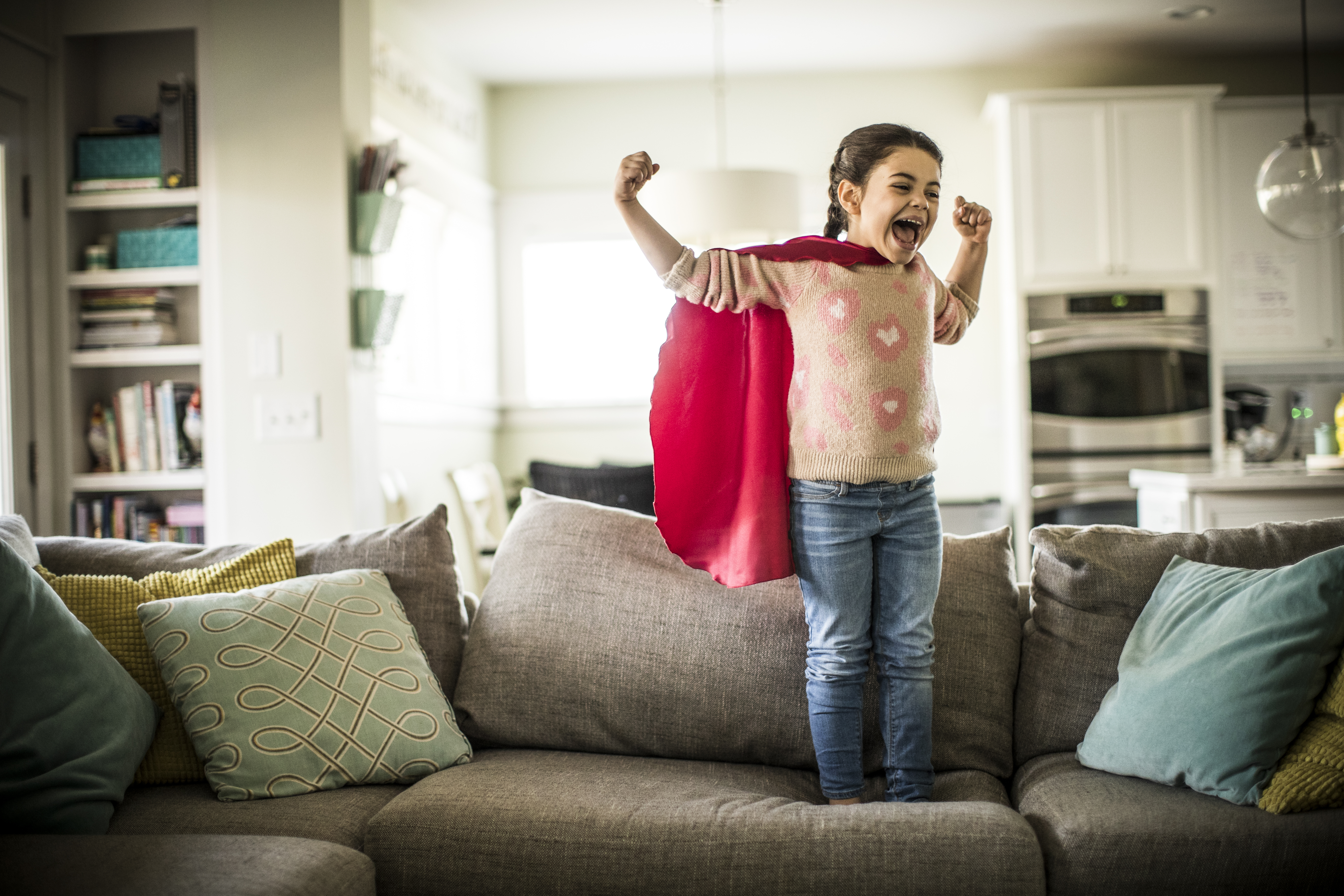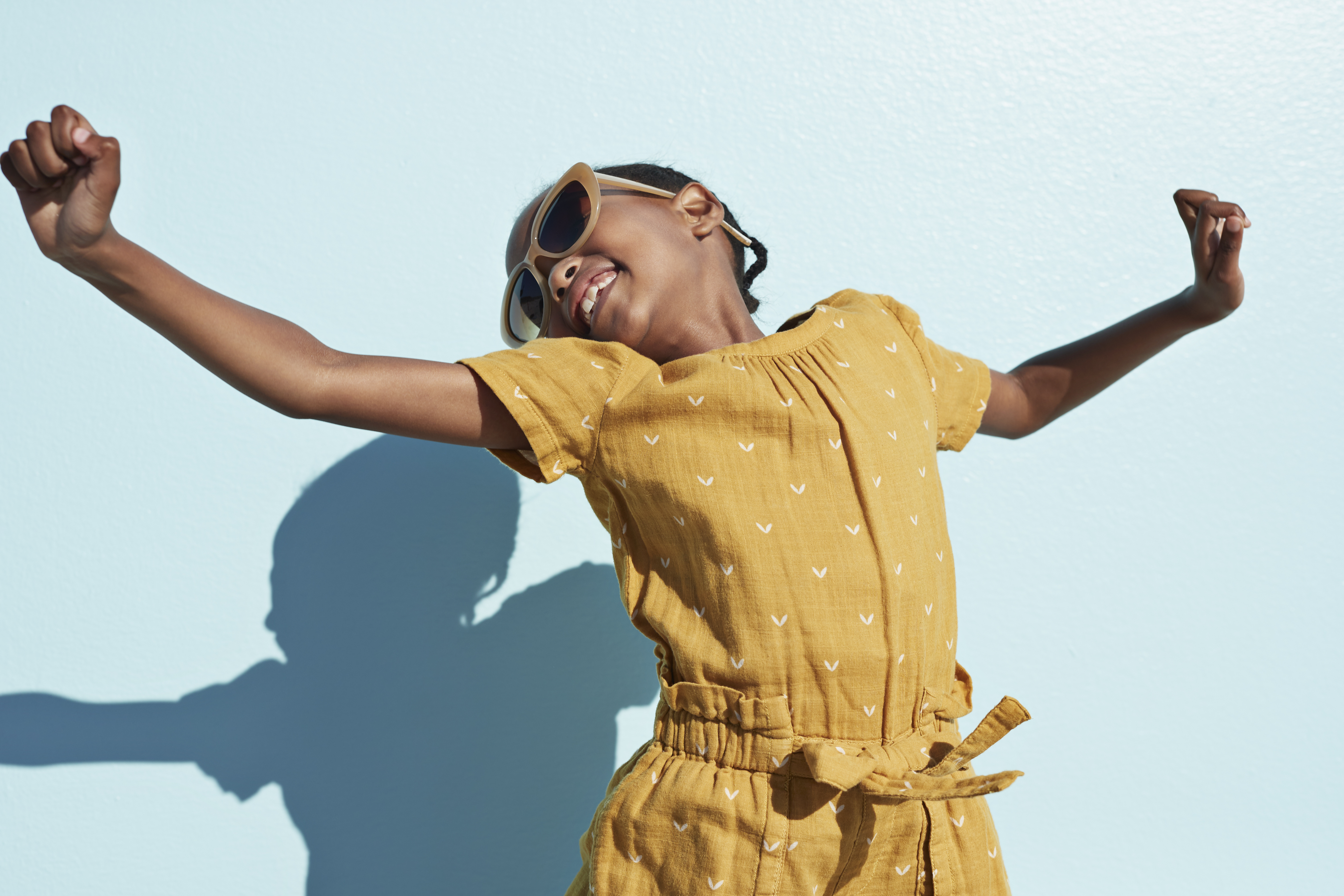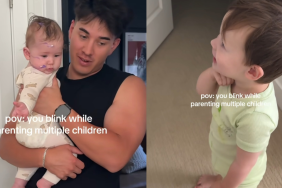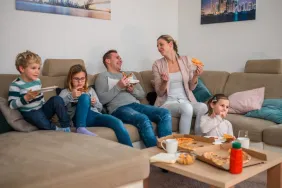We all want to wire our children for early and long-lasting self-esteem, but the truth is that many children end up struggling to feel good about themselves. Confidence is critical for being open to challenges, trying new things and for speaking up and the wiring starts very early on.
How does a child develop confidence?
“When she feels a sense of mastery – in her own interests (building a bridge with a partner in the block corner), in a typical developmental task (taking his first steps along the coffee table and then reaching forward toward the nearby sofa) or through interactions with peer or adults who reinforce their growth (smiles, cheers and coos!),” says Dr. Rebecca Mannis, learning specialist at Ivy Prep Learning Center. “From the moment that we play peekaboo with our kids or assure our infants that we are confident in their capacity to soothe themselves to sleep without constantly patting their backs, we are setting the pace for building kids’ confidence. That confidence emerges through the love we show them, our scaffolding (setting them up for success) in tasks they and we place for them, and in our encouraging them as they stretch themselves for what they intrinsically want to explore or better understand about the world around them.”
Mannis underlines that it’s less of an issue of “when” parents help to build confidence and more a matter of “how” they make that happen in the smaller and larger moments of their kids’ lives.
Keep reading for Mannis’ top strategies for helping our kids build confidence.
Let your kids lead in pursuing passions and setting goals.
“Encourage setting attainable goals. Aim small, spend less, and let them lead the way. Your kid may love the look of a Stratocaster electric guitar, but the neck size and fret spacing may be too oversized for your kiddo or his working memory and executive function skills may not be developed enough to remember the purpose of all the knobs on the guitar and amp, so rent a smaller one and sign on for just a few lessons. In due time, he can shift to more regular lessons once you see whether his motor planning skills are better suited for strumming some classic rock or learning the more linear octaves of the piano. And if you have invested minimally to start, then you can all genuinely celebrate his having given it a try with minimal baggage about cost and whether he’s ready to jump on stage with Coldplay.”

Focus on the process more than the product.
“Kids can feel confident to try new things when they develop the capacity to stick with a goal and then reflect on the factors that led them to the finish line. Asking questions that get him thinking in this way not only instills confidence but also helps him verbalize and problem solve – critical steps toward transferring systems to new settings, or executive functions. When he’s done with the form in the block corner, you don’t need to count the number of blocks used or manage the section that spilled over. Rather, you can comment, ‘I am noticing that you drew some cool pictures for where the animals stayed by the moat. How did you decide to put the lion by the drawbridge?’ or ‘It is so nice that Caitlin let you keep the fort out until tomorrow. Where do you and Nicholas want to expand during morning play time?'”
Find those teachable moments that lie in the frustrations and switchbacks of every person’s development.
“Remember and reinforce that learning and achievement don’t happen in a straight line. No development happens evenly. Whether it’s a kid growing his reading or pitching skills or our team’s adapting to hybrid workspace realities, the learning curve is a natural part of the process. We need to give ourselves and our kids space to recognize that managing those changes and optimizing insights from our successes are what ultimately give us the confidence to maintain our staying power to the point of mastery.”
Metacognition.
“This is a mouthful of a word for a straightforward concept. The more we help our kids explore ‘how’ – the process that enables them to meet their goals, the more we model for them the role of problem solving. Helps kids learn how to adapt and stay centered – critical tools for both the monkey bar moments in the playground and their future workplace realities since some predict that our kids will pivot to 5-7 careers over the course of their adult lives.”

Be authentic.
“Our kids know when we are telling the truth and when we are stretching with fake praise about ho-hum natural matters. As my colleague Dr. Ron Taffel notes, don’t cheer your kid on for ‘defying gravity’ and sledding down a snowy hill in Central Park. Rather, praise him for his leadership skills in organizing the kids at the top so that every person had a turn.”
Be mindful of when your own history is interfering with your child’s own growth experience.
“If you find yourself feeling insecure or overly competitive, check in with yourself about your own childhood experiences and how your parents helped you to manage feats or frustrations. Don’t knock yourself for it – we’re only human – but be mindful so that the focus can be on your child’s growth as his own work in process.”
Competence leads to confidence.
“By creating experiences that are within your kid’s ‘window of tolerance,’ that is a stretch that feels like letting the breeze rather than a demand that sends the proverbial papers flying off the table. So, if your child is interested in skating, pursue it with a short lesson at a quieter time on the rink, when he’s fully fed and rested. And holding your hands on skates by the quiet side is a “W,” whether or not he topples along the way. This enables your kiddo to practice to the point of gradual mastery. We want him to feel good about his growth rather than frustrated by failure to achieve unrealistic expectations.”
Try learning something new and letting them teach or cheer you on.
“This provides us adults some humility and a reminder of how tough learning something new can be – and perhaps our kids’ confidence can grow from teaching us how to flip a skateboard or manage staying calm and collected when the inevitable scraped knee happens along the way.”








